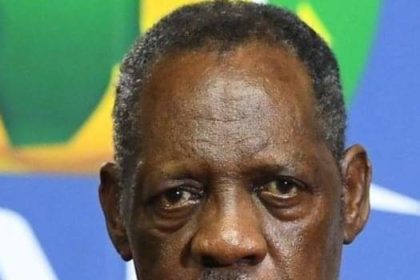U.S. Ambassador to the United Nations Linda Thomas-Greenfield has announced a significant $203 million pledge from the United States.
The announcement, made in Khartoum, marks a critical intervention as the conflict in Sudan continues to wreak havoc, displacing hundreds of thousands and pushing many to the brink of starvation.
Thomas-Greenfield’s declaration comes amid harrowing reports of extreme deprivation faced by the Sudanese people. “This aid package is designed to provide immediate relief,” she stated, her voice resonating with urgency and compassion. “We hope our commitment will galvanize other nations to join us in this critical endeavor.”
The pledged funds are earmarked for essential services, including shelter, cash assistance, and educational support for children who have been affected by the ongoing conflict.
This multifaceted approach aims to address both immediate and long-term needs of the population, which has been devastated by over a year of relentless violence.
The severity of the situation cannot be overstated. With 750,000 people facing famine conditions, reports have emerged of desperate families resorting to eating dirt and tree leaves to stave off hunger. Vulnerable groups, including children and the elderly, are particularly at risk as the conflict shows no signs of abating.
In her address, Thomas-Greenfield painted a stark picture of the humanitarian crisis. “The scenes here are heart-wrenching. Families torn apart, children without hope for the future, and entire communities on the verge of collapse. We cannot stand idly by,” she asserted.
The conflict, which erupted over a year ago, has forced tens of thousands to flee to neighboring Chad, exacerbating regional instability. The United Nations has made an urgent appeal for $2.7 billion to meet the burgeoning humanitarian needs in Sudan, yet shockingly, only 6% of this target has been met.
This shortfall in funding underscores the dire need for a concerted global response. Thomas-Greenfield’s call to action is a clarion call for international solidarity. “We urge influential parties to press for negotiations and to make it clear that a military solution is not a viable option. The suffering must end,” she emphasized.
The ambassador’s visit to Sudan underscores the United States’ commitment to addressing the crisis at its source. Her presence in the region not only highlights the gravity of the situation but also serves as a potent reminder of the power of diplomacy and international cooperation.
The plight of the Sudanese people is a poignant testament to the destructive power of conflict and the urgent need for peace. As Thomas-Greenfield concluded her speech, she left no doubt about the stakes: “The world is watching. It is time for all of us to act decisively and compassionately.”
In the dusty streets of Khartoum, where hope is in short supply, the U.S. pledge of $203 million presents more than just financial aid; it is a lifeline, a beacon of hope amidst the thick height of conflict.




